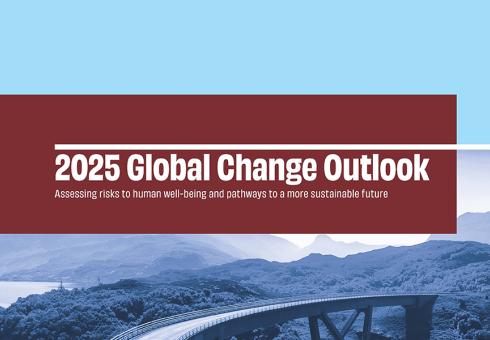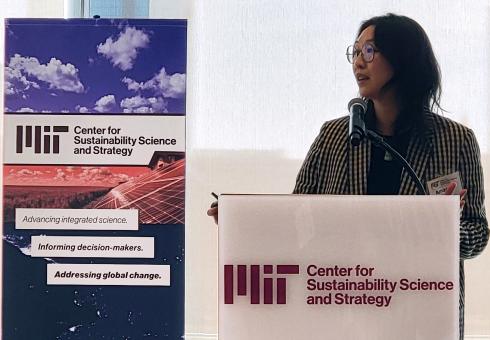New Global Change Outlook shows how accelerated action can reduce climate risks and improve sustainability outcomes, while highlighting potential geopolitical hurdles
News and Outreach: Angelo Gurgel
A conversation with Frances Moore Lappé, co-founder of the Small Planet Institute and author of Diet for a Small Planet, and MIT CS3 Principal Research Scientist Angelo Gurgel about how what we eat impacts the climate at multiple levels. Each episode of Climate Reveal takes a deep dive into a specific aspect of the climate crisis and ongoing work toward solutions. (Boston College Creative Communication Lab)
MIT CS3 presentations highlight multiple sustainability challenges and solutions
MIT CS3-led case study of Italian farmland shows potential of agroforestry to sequester carbon
In one project, MIT CS3 researchers aim to create a framework for evaluating decarbonization and energy transition pathways for Africa (MIT Energy Initiative)
New modeling framework projects how pressures on the global food system could impact cropland, pastureland and forests
MIT CS3 study finds that government collaboration and public policies will be necessary to deploy sustainable aviation fuel at scale and reduce its economic impact across the region (LATAM)
Key points from the 47th MIT Global Change Forum
We don’t yet know how carbon removal technologies will compare at scale, and there is probably no one “best” method in all times and places, says MIT CS3 Principal Research Scientist Angelo Gurgel (MIT Climate Portal)
First workshop explores concept and potential research directions

Amid growing concern about environmental and socioeconomic “tipping point” events, the MIT Center for Sustainability Science and Strategy (CS3) has launched a new, interactive workshop series aimed at advancing research discussions and collaborations to better understand, predict and inform proactive responses to their potential emergence. The kickoff Tipping Points workshop, held on February 27 on Zoom and facilitated by CS3 Deputy Director C. Adam Schlosser and Principal Research Scientist Jennifer Morris, included an overview of the concept, three flash talks on tipping points science and its potential application, and breakout sessions to identify key research challenges and opportunities.
Modeling improvements needed to provide more reliable guidance to decision-makers, finds MIT CS3-led study











